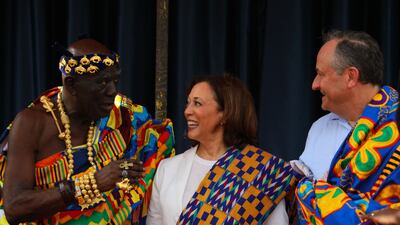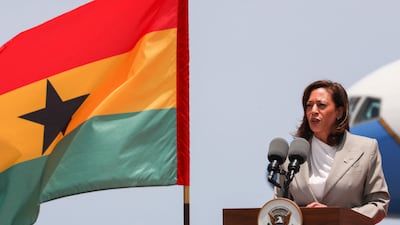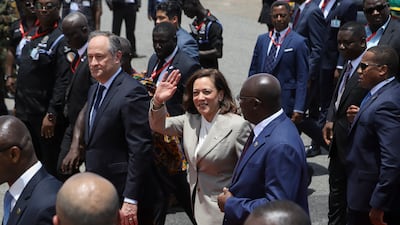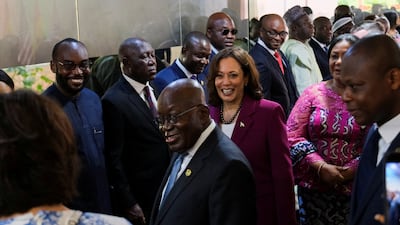US Vice President Kamala Harris delivered a speech to thousands of young Ghanaians on Tuesday in Accra on women's empowerment.
And Ms Harris toured a coastal building that was the last stop for Africans who were sold into the transatlantic slave trade.
Her visit to Ghana, the first stop on an African tour that will also include Tanzania and Zambia, is part of a charm offensive by Washington as it seeks to counter the growing influence of China and Russia.
Ms Harris used the stop to promise American partnership, urge African nations to do more for women, and speak about the importance of learning difficult history, in an apparent reference to recent Republican push to strike some lessons from US classrooms.
In a speech in front of Black Star Gate, a monument built on the site where Ghana declared independence from Britain in 1957, she said that by the middle of the century, one in four people in the world will be African.
"That of course means what happens on this continent impacts the entire world," she said.
Ms Harris said that innovation, such as the pioneering of mobile phone payments in Kenya or healthcare deliveries by drone in Rwanda before such services existed in the US, would be key to Africa's future success.
"We must invest in the African ingenuity and creativity, which will unlock incredible economic growth and opportunities, not only for the people of the 54 countries that make up this diverse continent, but for the American people and people around the world," she said.
Vice President Kamala Harris in Africa — in pictures
Ms Harris underlined deep gender disparities in Africa, saying the US would work alongside African partners to close those gaps.
She was given a guided tour of Cape Coast Castle, a Unesco World Heritage Site, where slaves were shipped to North and South America and the Caribbean, and shown the dungeons and the door of no return.
Ms Harris laid a wreath in honour of those who died during the slave trade.
"The horror of what happened here must always be remembered," she said in a quavering voice.
"It cannot be denied, it must be taught, history must be learned, and we must then be guided by what we know also to be the history of those who survived on the Americas."
Agencies contributed to this report.












